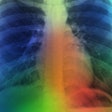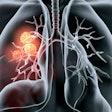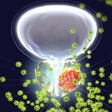
Deep learning doubled the detection of high-risk lesions during routine endoscopies in a clinical trial of more than 3,000 patients in China.
The study, details of which have been published in Science Translational Medicine, randomized 3,117 people aged 50 years or older to undergo assessment with a standard endoscope or an endoscope assisted by an artificial intelligence (AI)-based system for detecting esophageal cancer and precancerous lesions. The researchers used a deep-learning architecture and more than 190,000 medical images to develop, train, and validate the system.
In the clinical trial, the deep learning-assisted endoscope detected high-risk esophageal lesions in 1.8% of patients. The detection rate in the unassisted control group was 0.9%, prompting the researchers to write that the neural network is “a huge improvement that may have substantial clinical implications for improving patient prognosis.”
Other endpoints provided evidence that increased lesion detection translated into improved diagnosis of cancer. The detection rate of early esophageal cancer was 0.7% in the neural network group compared to 0.2% in the control cohort. However, rates of detection of advanced esophageal cancer and low- and high-grade intraepithelial neoplasia were not significantly different between the two cohorts.
Endoscopists took biopsies from lesions that the algorithm identified as high risk and from lesions they suspected of being dysplasia or cancer. The number of biopsies that tested negative was similar in the experimental and control groups.
The clinical implications of the trial relate to the importance of detecting and treating esophageal cancer early. The five-year survival rate for early-stage esophageal carcinoma is more than 90% when the cancer is treated endoscopically or surgically. However, most patients present with more advanced disease.
Endoscopy screening can spot signs of cancer, but the neoplastic lesions are difficult to identify, especially in the early stages. Unlike easier-to-detect colorectal cancers, esophageal lesions are prone to superficial and subtle morphological changes and accuracy strongly depends on the experience of the physician. Interpretations of results vary even among experienced endoscopists.
Those problems, which make it hard to reliably detect cancers in large-scale screening programs, could be addressed by neural networks that improve the consistency of lesion detection. The researchers ran the study, the first prospective large-scale randomized trial to validate such a neural network, to verify the potential; they wrote that large-scale, multicenter trials are now urgently required to confirm the results.



















